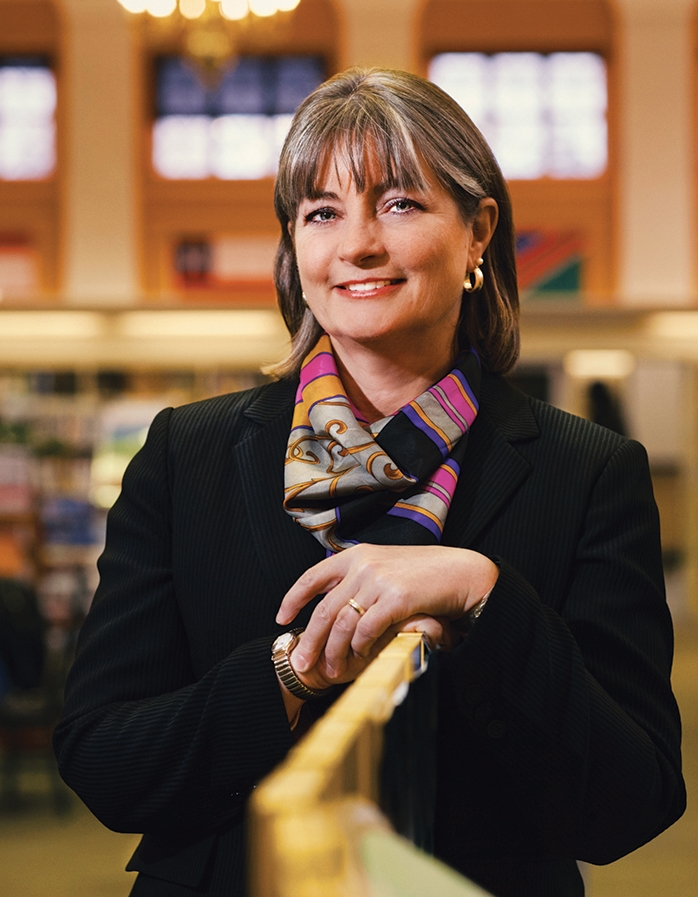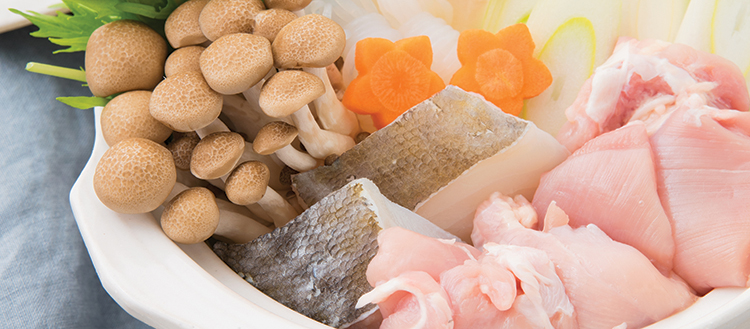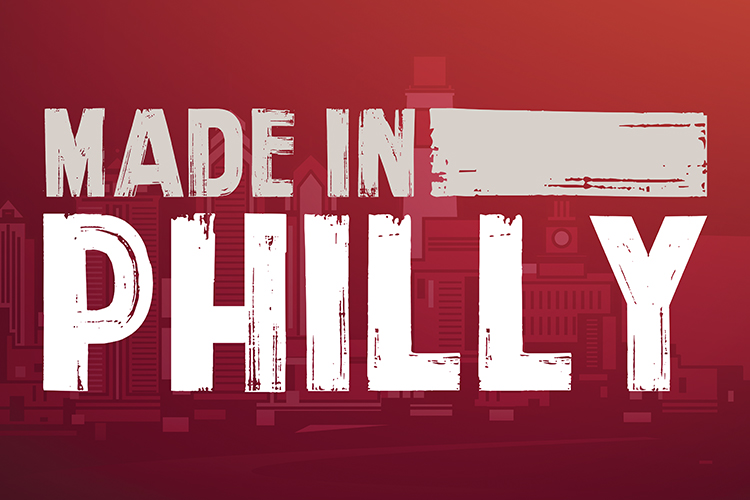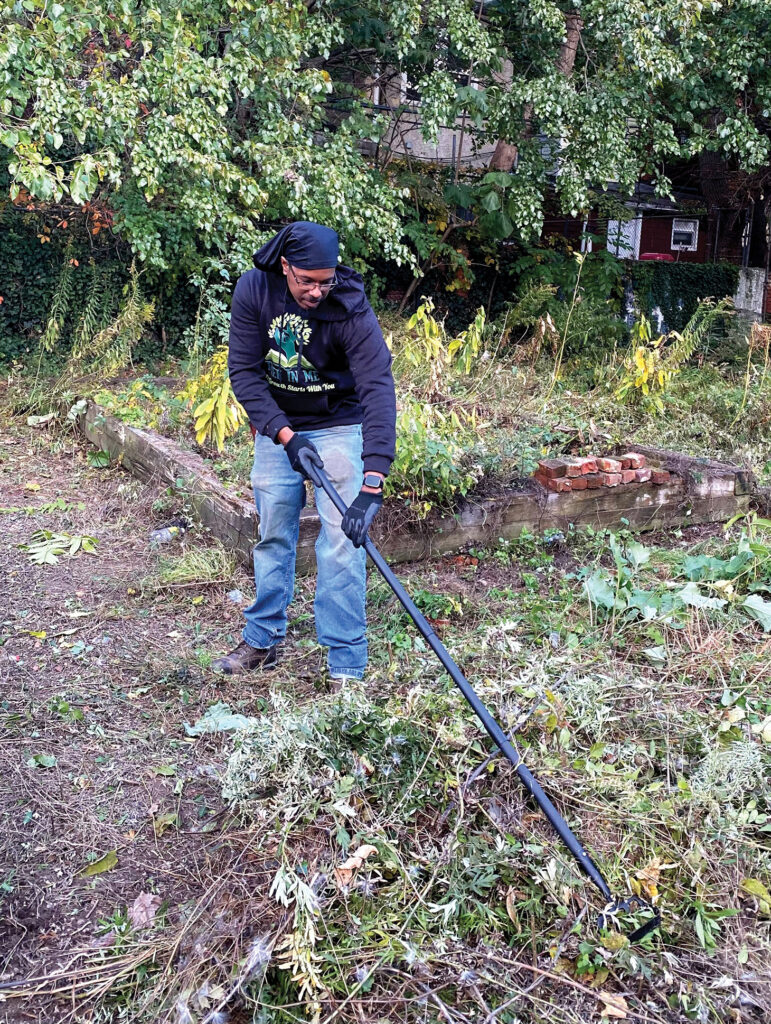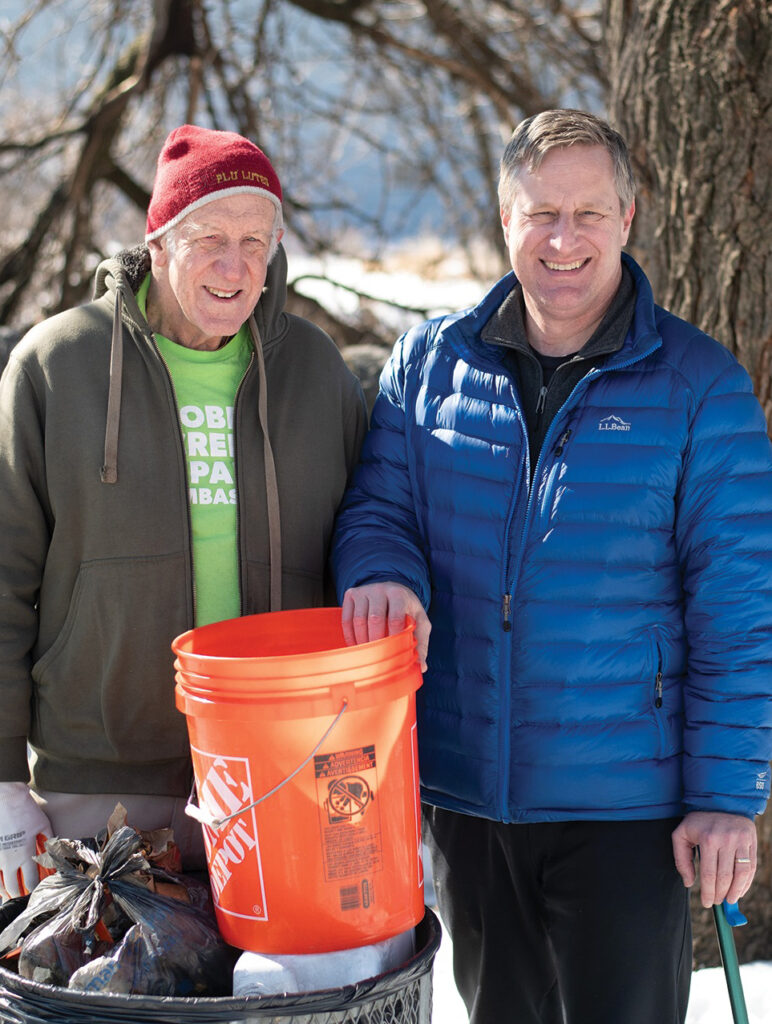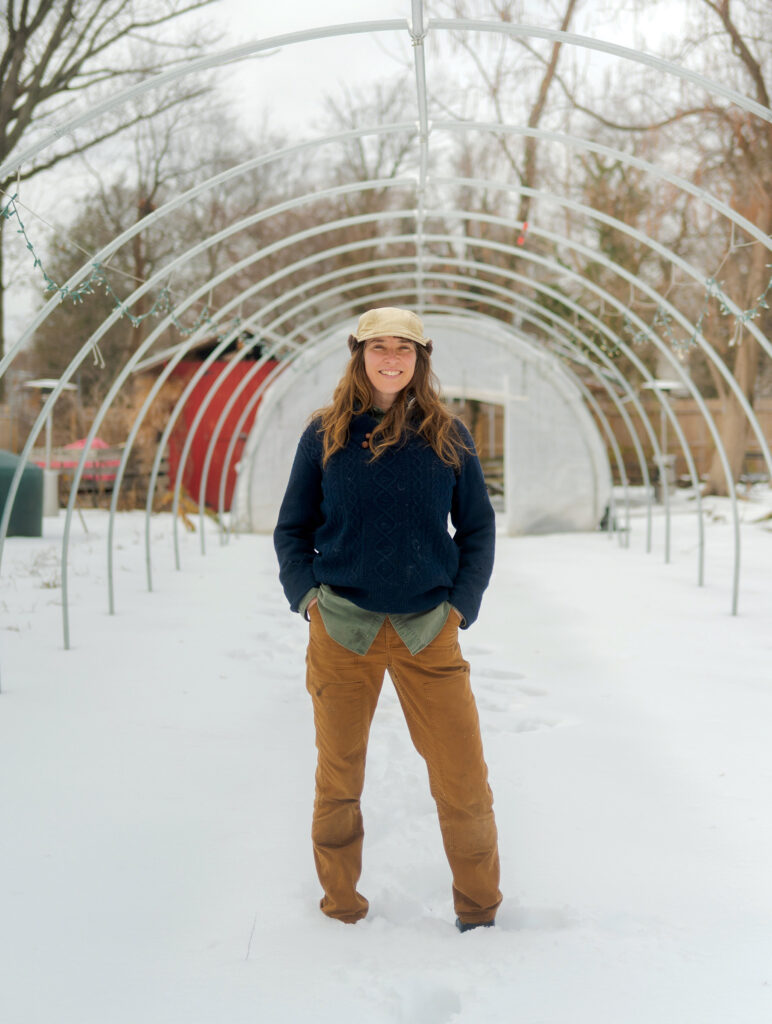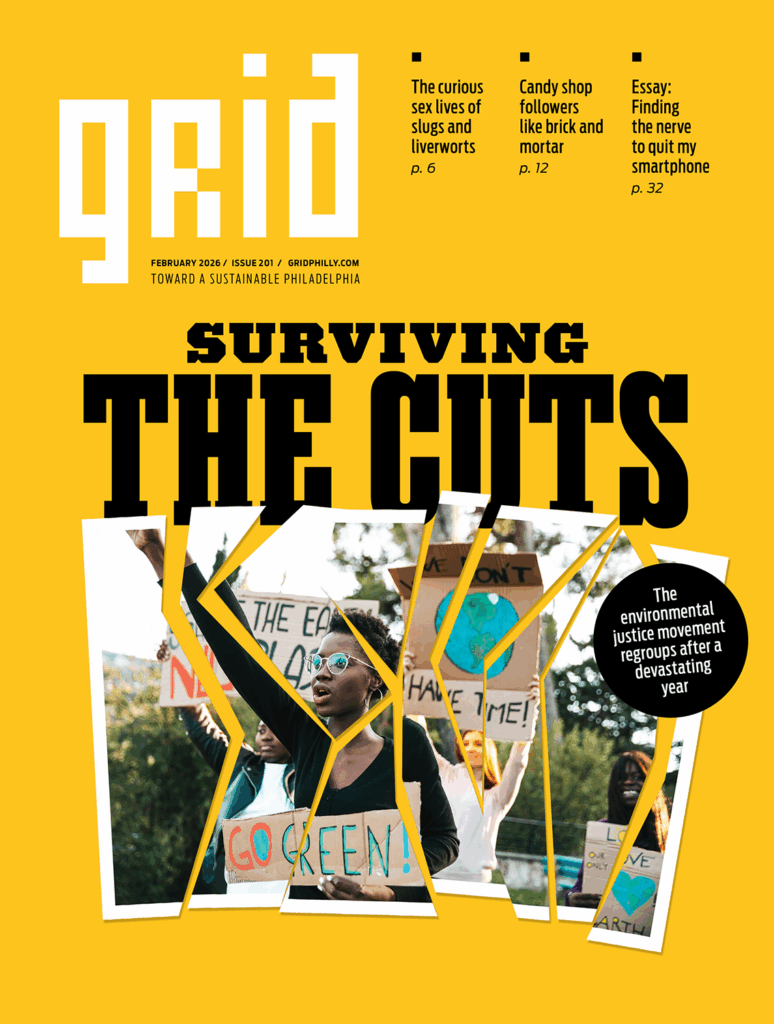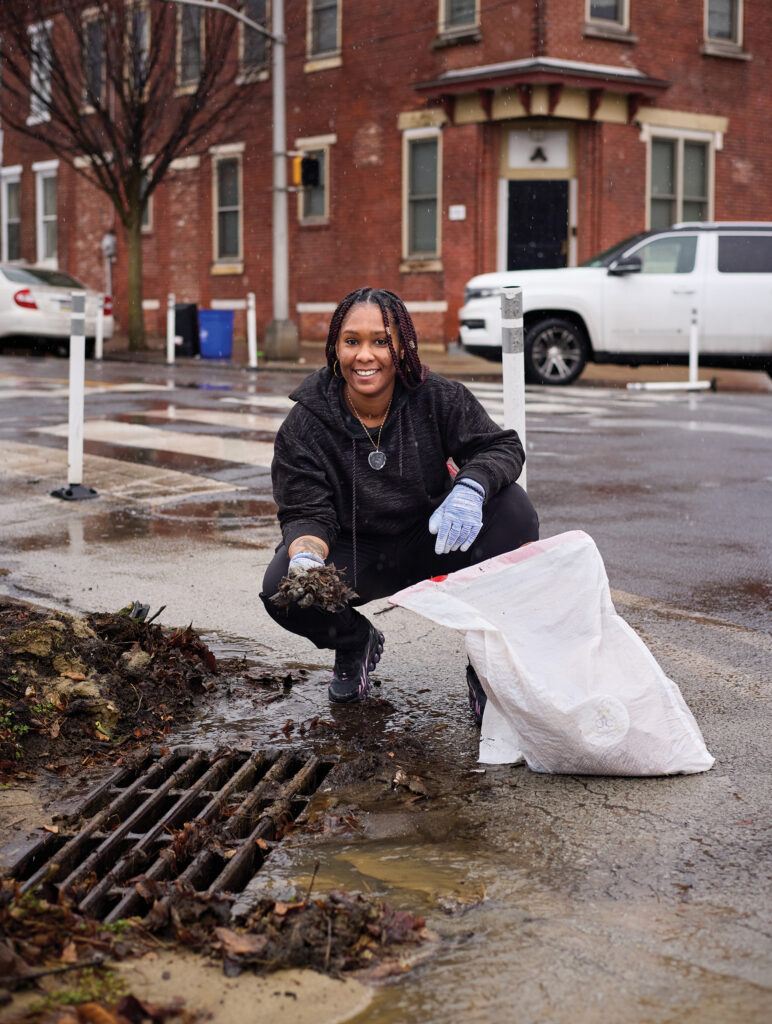Free Library of Philadelphia President Siobhan Reardon | photo by Jon Roemer
By Marilyn Anthony
In 2008, Siobhan Reardon, the first female president of the Free Library of Philadelphia, had some challenging ingredients to work with when she arrived: a 30 percent budget cut, a stalled capital campaign, pressure to close many neighborhood libraries and the astounding fact that over half a million adults among Philadelphia’s 1.5 million residents are functionally illiterate.
The situation that Reardon inherited sounds like a recipe for disaster, but seven years later, the Free Library of Philadelphia (FLP) is well into implementation of its strategic plan, “Building Inspiration: 21st Century Libraries Initiative,” and the Library Press proclaimed her its “2015 Librarian of the Year.”
The Culinary Literacy Center (CLC) on the fourth floor of the Central Library at 19th and Ben Franklin Parkway is one of the innovations cooked up by Reardon. “We had this former cafeteria space, and I recalled how much I’ve enjoyed taking cooking classes for the learning, the socialization, the skills and the recipes I could bring home and share with my family,” Reardon recalls. “There are so many takeaways from cooking. So we made up the name ‘Culinary Literacy Center’ and set about creating programming to advance literacy skills.”
Since June 2014, CLC boasts completion of 325 programs with over 3,000 participants. Led by Culinary Literacy Specialist Elizabeth Fitzgerald, the CLC enlisted many partners to design and populate cooking programs, utilizing the new demonstration kitchen to engage children, immigrant women, veterans, ESOL students (English speakers of other languages) and more. Regardless of the audience, key elements comprise the CLC’s approach. “We look at ways food and nutrition can come together to create a class that’s fun and educational,” says CLC Librarian, Suzanna Urminska,
CLC classes range in size from 35 to as few as 5, creating a comfortable setting with ample opportunity for hands on learning. The classes fold in literacy skills, using recipes to introduce new words and concepts, spelling and pronunciation, but also sequential thinking and the ability to follow directions. Math and science play a part through measurements, conversions and understanding cooking techniques.
Students write, speak, touch and do specific tasks, a process that literacy specialist Sarajane Blair says is “a perfect formula for reinforcing literacy. You’re teaching math and science without people realizing it because they’re so engaged with the food.”
Through the yearlong “Nourishing Literacy” program, the sixth graders at Masterman School read the junior edition of Michael Pollan’s, “The Omnivore’s Dilemma.” Students discussed the book, learned how to read recipes, devised their own recipes based on ingredients available at corner stores and then cooked the dishes. CLC’s Fitzgerald, mother of a two year old, plans to expand “Nourishing Literacy” to reach kindergarteners and third graders.
Chef Marc Vetri taught an 11-week class introducing ninth graders to culinary skills based on the course he teaches for hospitality majors at Drexel University. The CLC course ended with an Iron Chef style competition, complete with judges. Vetri committed early and deeply to the CLC, based on his belief that food has a rare ability “to teach about the environment, science, industry, culture, math. Just about everything can be taught through food. And then, you can eat it.”
Former school educator Shayna Marmar, who runs Honeypie Cooking, worked with Fitzgerald to develop recipes encouraging people of all ages to eat vegetables. Marmar appreciates the “natural literacy in the fabric of cooking,” adding, “In the CLC, we want to educate to the best of our ability and we want it to be approachable and joyful.”
But the proof, as the saying goes, is in the pudding. Amy Weidner’s two sons, Branch and Jay (ages 10 and 12), students in the “Summer Thyme Cooks” classes, compete to see who gets to make dinner for the family of six. They’ve added words like “zesting” to their vocabulary, watch cooking shows as a family and are much more aware of and appreciative of ingredients. “It’s a sweet program,” Weidner notes.
FLP President Reardon sees an enduring future for public libraries. “Now is the carpe diem moment,” she says. “We have an obligation to be very flexible in our services. People learn noisily now. A lot of the fun things in learning are not quiet things: singing songs together, telling stories to children, talking with others about what you are discovering or thinking or feeling.”
Mix in the clatter of knives, bowls and spoons and the chatter of cooks caught up in the pleasures of cooking, eating and learning together in the Culinary Literacy Center. The 21st Century FLP library offers all Philadelphians lifelong learning and a welcoming, well-laden kitchen table too.


